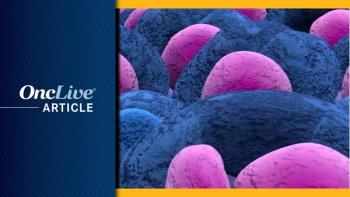
Dr. Shah on the Efficacy and Safety of Cilta-Cel in Relapsed/Refractory Multiple Myeloma

Nina Shah, MD, discusses the efficacy and safety data observed with ciltacabtagene autoleucel in relapsed/refractory multiple myeloma.
Nina Shah, MD, a hematologist and oncologist, and an associate professor of medicine, Department of Medicine, at the University of California, San Francisco (UCSF) Helen Diller Family Comprehensive Cancer Center, discusses the efficacy and safety data observed with ciltacabtagene autoleucel (cilta-cel) in relapsed/refractory multiple myeloma.
Cilta-cel is an investigational second-generation CAR T-cell therapy with 2 BCMA-targeting, single-domain antibodies, says Shah. Comparatively, idecabtagene vicleucel (ide-cel; Abecma) utilizes 1 BCMA–binding site, Shah adds.
Data from the phase 1b/2 CARTITUDE-1 trial demonstrated an overall response rate of 96.9%, a stringent complete response rate of 67%, and a very good partial response rate of 25.8% with cilta-cel in heavily pretreated patients with relapsed/refractory multiple myeloma, says Shah. Although long-term follow-up data are not mature, responses appear durable with a 12-month progression-free survival rate of 76.6%.
Regarding safety, 94.8% of patients experienced cytokine release syndrome (CRS); however, 94.6% of cases were grade 1 or 2, Shah explains. The median time to CRS onset was 7 days, which suggests that patients may not have to remain in the hospital for a full 14-day period following infusion, Shah explains.
Additionally, 16.5% of patients experienced immune effector cell–associated neurotoxicity syndrome, says Shah. Notably, 12.4% of patients experienced other neurotoxicities, such as movement/neurocognitive changes, nerve palsy, or peripheral motor neuropathy, concludes Shah.



































